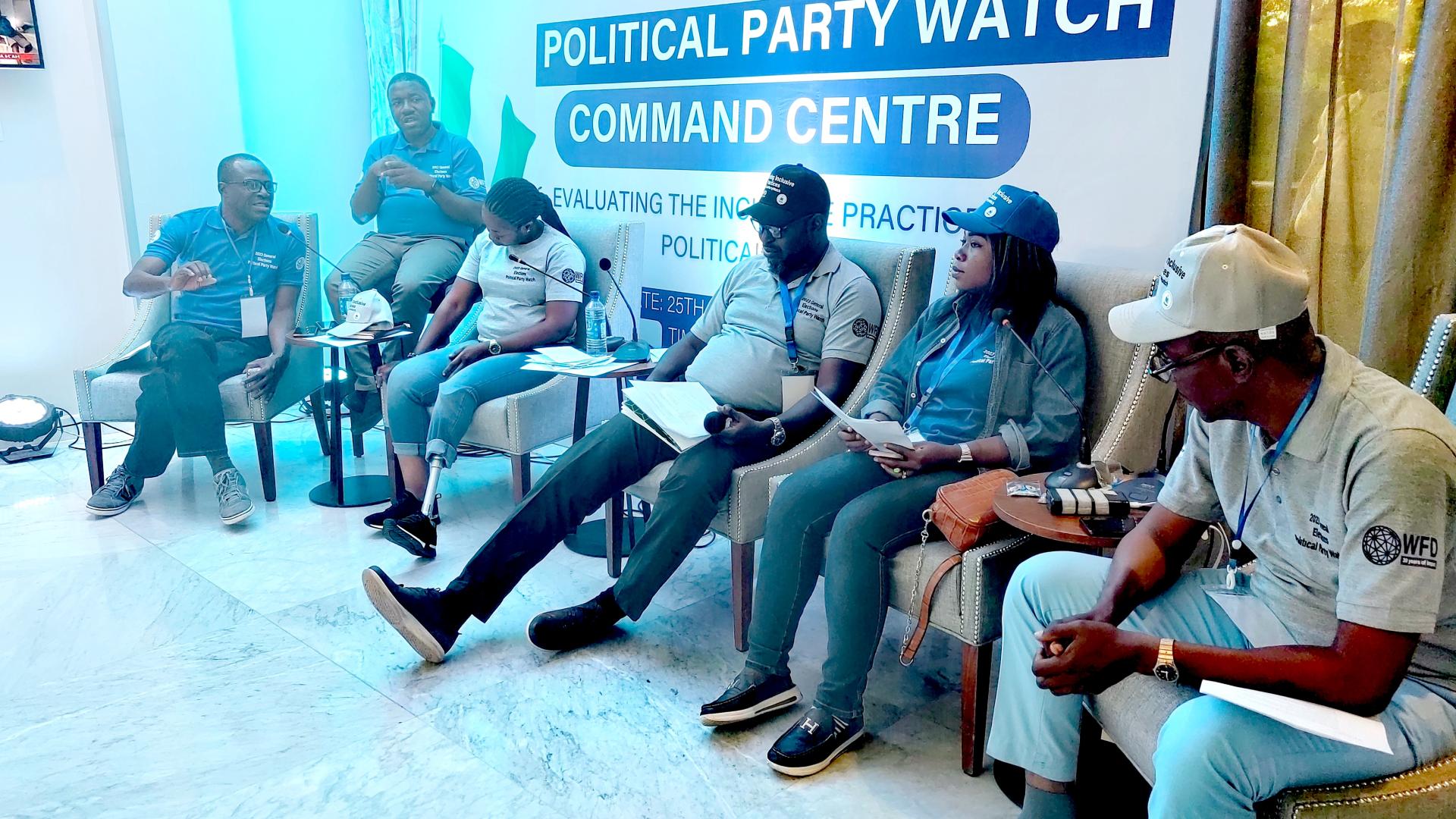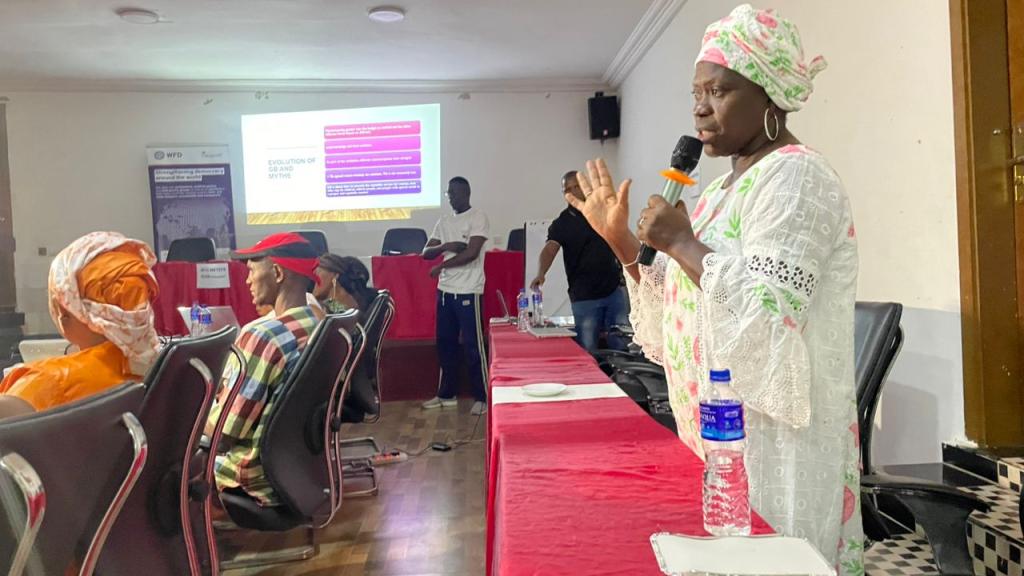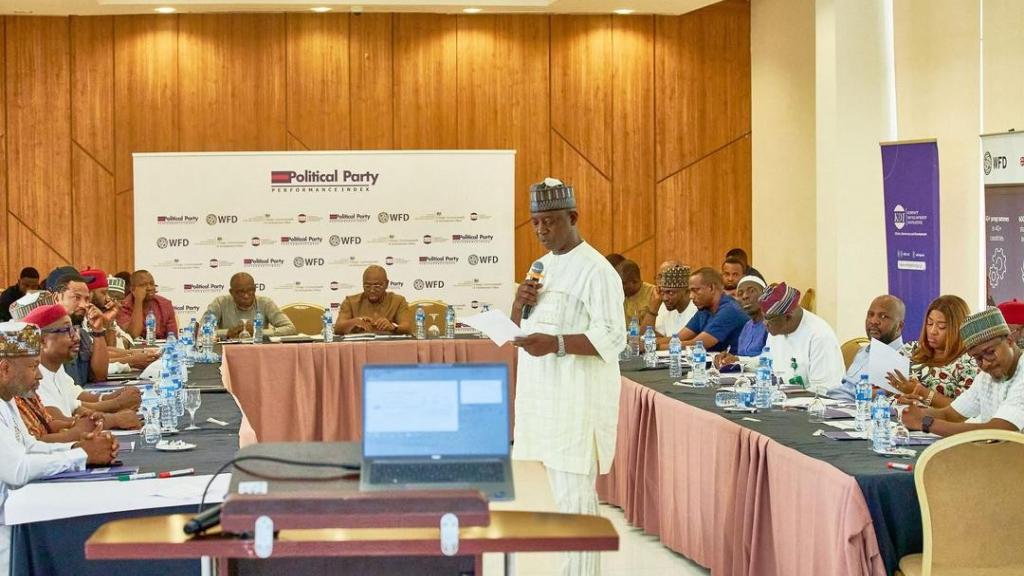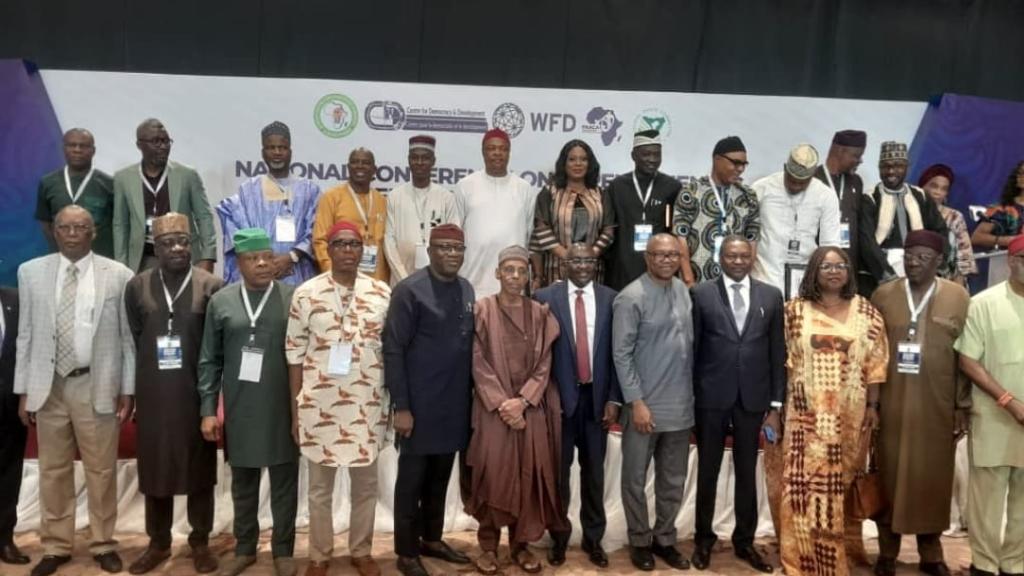Changing the political landscape in Nigeria through inclusive practices

In the last nine months Westminster Foundation for Democracy (WFD) Nigeria – in partnership with the Nigerian National Institute for Legislative and Democratic Studies (NILDS) – focused on modalities for inclusive and effective participation of underrepresented groups in political parties. Through a project titled Political Party Watch (PPW), the partnership built on an earlier study conducted by WFD in 2021. The study found there was a need to increase the level of transparency, accountability, and inclusion of underrepresented groups to participate effectively into political parties’ procedures and operations.
Now, political parties are regarded as less democratic internally and controlled by few powerful individuals who are mostly male. This has contributed to stalling party reforms and the consequent poor public perception of political parties. The 1999 Constitution of Federal Republic of Nigeria (as amended) has laid down guidelines for political parties to be non-discriminatory in their formation and operations. Yet, women, young people, and persons with disabilities still face exclusion. However, as the only association empowered by law to canvass for votes during national and subnational elections, and therefore, the only platform by which citizens can contest political offices, political parties are still veritable to inclusive participation in governance.
In February 2020, Nigeria’s national election management body – the Independent National Electoral Commission (INEC) – delisted 74 political parties that did not work in accordance with guidelines for party formation and operation in Nigeria. Currently, Nigeria has eighteen (18) registered political parties. However, evidence of exclusion of women, youth, and persons with disabilities still exists. The exclusion is becoming increasingly harmful to the efforts of advancing democracy in the country.
Though the underrepresented groups are members of various political parties, they rarely get elected to party positions, nor do they easily emerge as candidates for elections on the platforms of their parties. Equally, they are not prioritised during appointments of party members into key public positions. This has resulted in Nigeria having the least numbers of women in parliament in Africa, which as of 2022, oscillated between 4 and 5 percent. In the February 25, 2023, National Assembly elections, only 15 women were elected. The percentage of elected women therefore further declining to 3.1% of the 469 total number of seats in both the senate and the House of Representatives. The situation is similar for the youth, whose population has continued to grow, and persons with disabilities, who are over 30 million, a figure larger than the population of several countries in Africa and Europe.
WFD has continued to work with critical stakeholders and beneficiaries, including state and non-state actors to address this exclusion of citizens due to their social construction as female, youth, and/or persons with disabilities. Research commissioned by WFD/NILDS is evaluating the inclusive practices of the 18 political parties. The key findings will be disseminated to change narratives and improve parties’ inclusive practices. Using the platform of the PPW project, WFD and its partner NILDS sensitised the Nigeria Youth Parliament (NYP) in a two-day virtual workshop on processes to improve the participation young persons in the electoral system, beyond voting on election day. The Age Reduction Act (2018) popularly known as “Not Too Young to Run” puts more young Nigerians in good stead to contest for more positions but breaking the old order has remained daunting.
After the February 25, 2023, elections, WFD-Nigeria organised a multistakeholder reflection meeting with underrepresented groups (women, young people, and organisations of persons with disabilities), political parties, media, and government agencies. The meeting was a platform to assess political parties’ inclusive practices before, during and after the elections. The dialogue compared the existing laws that support the participation of underrepresented groups, with practices during the 2023 general elections. Key outcomes, including a call on political parties to improve their inclusive practices were made public via the media – electronic, print, and new media.
In the spirit of changing the narrative in the Nigerian political landscape to promote inclusive practices, WFD/NILDS sensitised 40 clerks of the Nigerian National Assembly early in February 2023. Among other things, the engagement introduced them to post-legislative scrutiny (PLS) and triggered its institutionalisation in the Nigerian parliament. PLS is a core thematic area of WFD’s intervention across the globe. It is expected that existing laws will be scrutinised in the 10th Assembly, from June 2023, to identify clauses and provisions that may need change to strengthen inclusive practices in Nigeria.
Moving forward, WFD will deepen its engagement with political parties. A memorandum of understanding (MoU) with the Inter-Party Advisory Council (IPAC) and NILDS has been drafted. The MoU will ensure that more inclusive practices are inculcated into political parties' procedures and operations. WFD Nigeria, through its GIA programme, will continue the conversation on processes to sign the MoU, engage political parties with the findings of the research, and support post-legislative scrutiny in the 10th Assembly. Already, a slot has been reserved for WFD-Nigeria, through our partner NILDS, to make presentation to the 10th Assembly on the benefits of institutionalising PLS in Nigeria.



